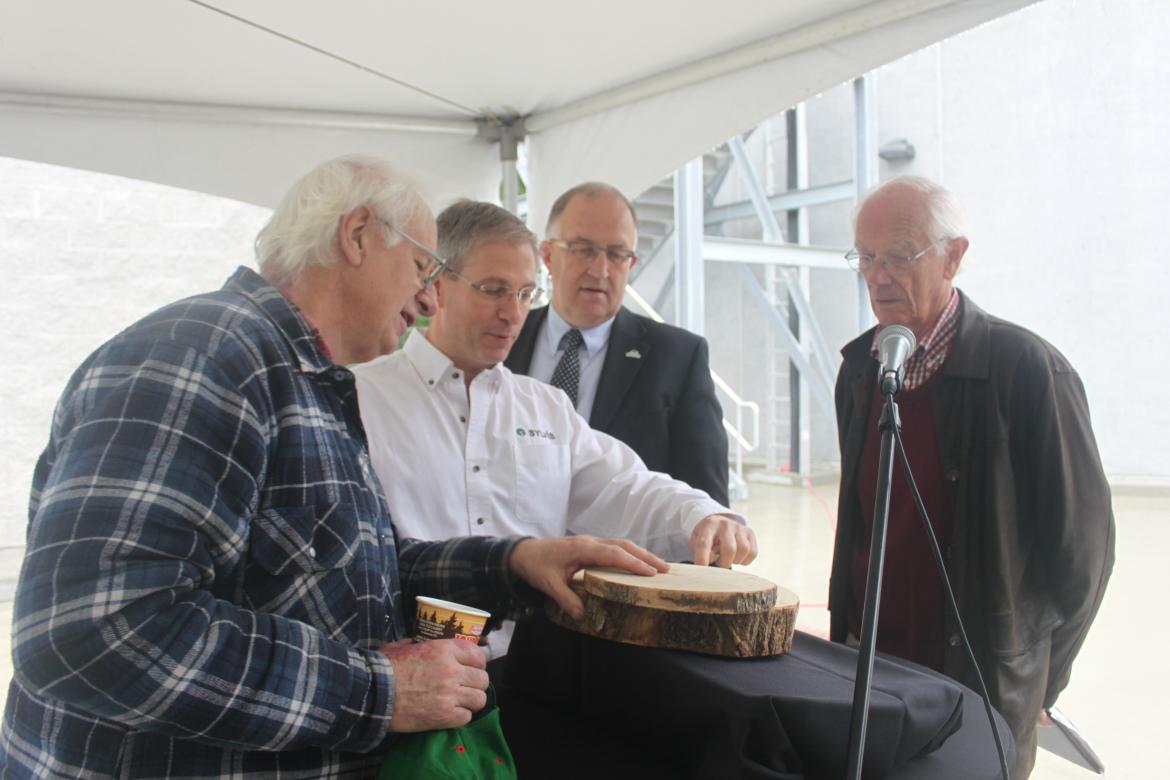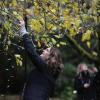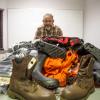
May 29, 2013 - 2:31am
[CTV story](http://vancouverisland.ctvnews.ca/video?clipId=936023)
Vancouver Island University (VIU), the Regional District of Nanaimo (RDN) and SYLVIS Environmental announced a new three-party agreement to manage biosolids produced in the region on Tuesday.
The new contract spells out how roughly 4,000 tonnes – or 450 dump truck loads - of biosolids produced annually at the RDN’s pollution control centres in Nanaimo and French Creek will be used for VIU’s Biosolids Fertilization Project.
Biosolids are nutrient-rich, humus-like materials that result from the treatment of liquid waste. They are high in organic content and contain nutrients such as nitrogen and phosphorous which are vital to healthy and productive soil.
Once treated, biosolids are commonly used as fertilizer in sectors such as agriculture, landscaping, landfill closure, mine reclamation and forestry. Biosolids produced at RDN wastewater treatment facilities were used as cover at the regional landfill.
With landfill space declining, the RDN began working with VIU in 2002 to manage biosolids. Currently, 100 per cent of the biosolids produced in the region are shipped by truck to VIU’s 1,700 hectare forest woodlot on Weigles Road in Nanaimo where the material is applied to soil to enhance tree growth.
VIU researchers have documented remarkable increases in tree growth at the woodlot site due to fertilization with biosolids – from 50 to 400 per cent.
The VIU woodlot consists of 1,000 hectares of private forest land leased by VIU from TimberWest; another 700 acres is Crown land. The forest is harvested in a sustainable manner and logs are sold competitively to the highest bidder.
Under the new three-party agreement, SYLVIS assumes operational and qualified professional responsibilities for the application of biosolids at the woodlot. In the past, biosolids application was handled by VIU. The university assumes a research focused role under the new agreement while the RDN remains as the biosolids generator.
RDN biosolids are tested regularly to confirm they meet Ministry of Environment criteria for land applications including standards for trace metals and pathogens. The storage and land application of biosolids at the woodlot site is also strictly regulated including restrictions on public access, monitoring of groundwater levels and 30 metre buffer zones from water sources such as lakes, rivers, and streams. Signs are also posted on roads and paths advising the public that biosolids have been applied at the woodlot.
“We are proud to be participating with VIU and SYLVIS Environmental in this biosolids management partnership agreement,” said Regional District of Nanaimo Chairperson Joe Stanhope. “It is exciting to be able to take something that was once considered waste and use it as an important resource for forest fertilization. This three-party partnership allows us to demonstrate to the community, and to other local governments, that the health of forests can be improved in an ecologically sensitive way by using readily available biosolids recovered from wastewater.”
VIU President and Vice-Chancellor Dr. Ralph Nilson said the VIU Biosolids Fertilization Project is dedicated to demonstrating modern practices in forestry and ecology and the woodlot provides a “living laboratory” for VIU science and forestry students.
“As a provider of post-secondary education we have a responsibility to teach and train students in industries that are relevant to our local community,” said Nilson. “The need to find and work with alternative fertilizers is becoming more and more critical as all industries look at how we can sustain the environment. This new partnership represents an environmental solution.
“It also provides excellent research opportunities for undergraduate students at VIU. For example, Nathan Hollenberg, a fourth year student in Biology, is currently participating in a project related to biosolid fertilization, forest productivity and carbon sequestration. He is doing this as part of VIU’s Biometeorology Research Laboratory.”
SYLVIS Environmental President Mike Van Ham said, “SYLVIS is excited about the new partnership with VIU and the RDN. We look forward to managing biosolids produced by the RDN at the VIU woodlot to enhance soil properties and increase tree growth rates. It is through innovative programs like this we are able to sustainably manage our waste and demonstrate best management of residuals.”
For more information go to www.viu.ca/forestry or www.rdn.bc.ca/cms.asp?wpID=1140
-30-
ABOUT SYLVIS: SYLVIS is a leading Canadian environmental consulting firm providing a range of services including applied research, environmental monitoring and assessment, land reclamation and restoration, environmental policy and planning, and residuals recycling. For fifteen years SYLVIS has demonstrated environmental solutions through innovation and ability. www.sylvis.com
ABOUT VIU: Vancouver Island University is Canada’s west coast university. Known as a centre of excellence for teaching, learning and applied research, VIU offers a diverse range of certificate, diploma and undergraduate and master degree programs to more than 18,000 students on campuses in Nanaimo, Powell River and Cowichan, and at the Parksville-Qualicum Centre. For more information visit www.viu.ca
ABOUT RDN: The Regional District of Nanaimo provides regional governance and services throughout Vancouver Island's beautiful central east coast. Communities within the regional federation include the municipalities of Nanaimo, Lantzville, Parksville, and Qualicum Beach, as well as seven unincorporated Electoral Areas. Established in 1967, the RDN is British Columbia's third most populous Regional District, of 28 throughout the province, and home to more than 140,000 people.www.rdn.ca
Media Contact
Janina Stajic, Manager, Vancouver Island University
P: 250.740.6288 E: Communications@viu.ca Twitter: @VIUNews
Tags: In the Community






